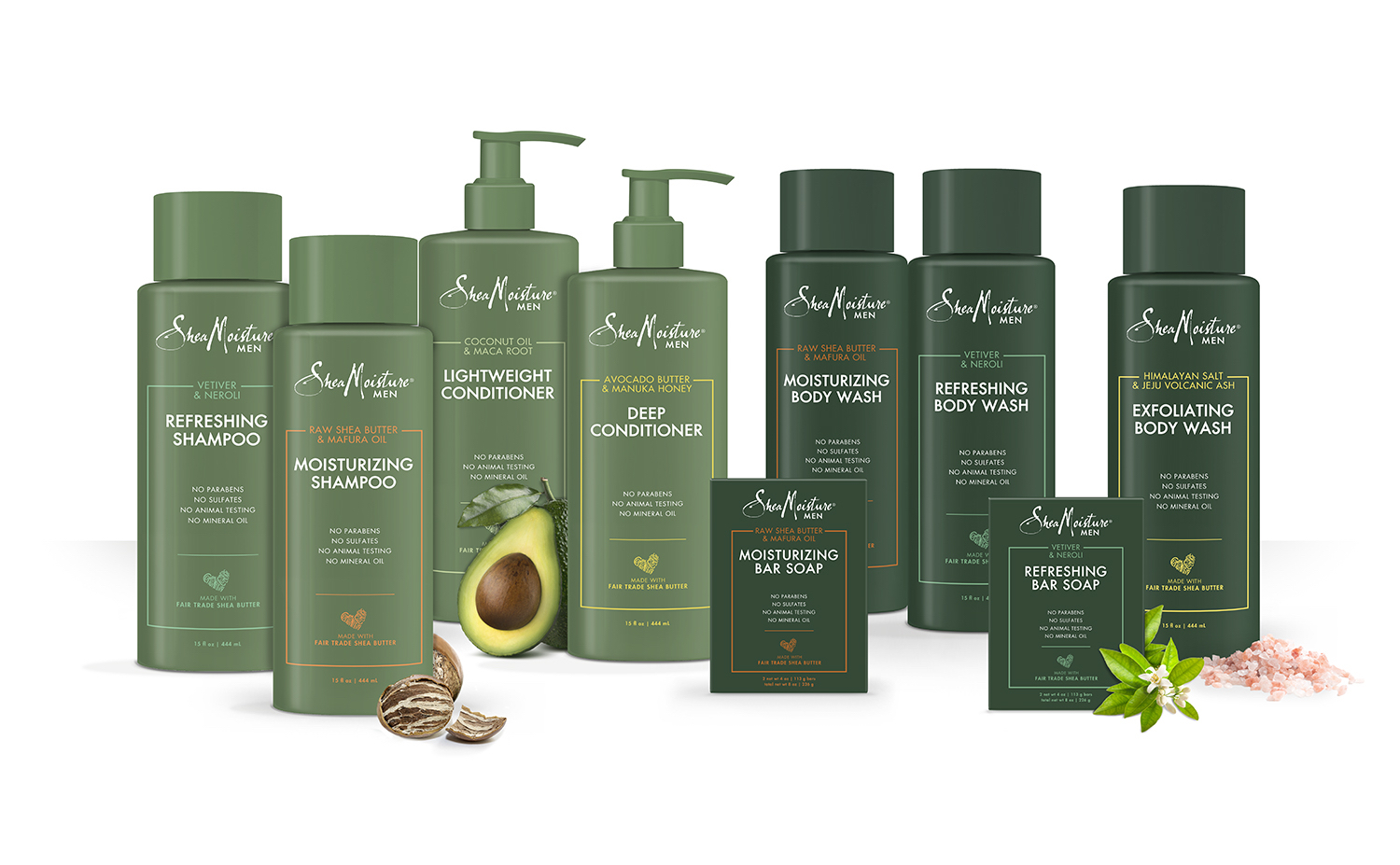
What Does Being “Black-Owned” Mean In 2021?
In late May 2020, in the midst of the worldwide Black Lives Matter protests following the murder of George Floyd, gaping racial disparities in COVID-19 care and deaths, and economic uncertainty, fashion designer Aurora James was social distancing at home and fielding emails from publicists wanting to know how the fashion industry could better support the Black community.
Everything going on prompted James to wonder what it would take for American retail store shelves to accurately reflect the makeup of the country. Racial fairness, she thought, might improve if there was greater equity in consumer goods industries like fashion, beauty and wellness. James says, “Often, companies will make gestures towards racial justice that seem meaningful at face value, but are actually less so when you dig into the details.”
According to the United States Census Bureau, Black Americans constituted around 13.4% of the U.S. population in 2019—not taking into account people who identify as multiple races—yet Black-owned consumer goods brands, historically corralled into ethnic aisles or dusty bottom shelves, were regularly under-indexed in major retailers. To bridge the gap between demographic composition and the reality on store shelves, James launched Fifteen Percent Pledge, a nonprofit that calls on major retailers to commit a minimum of 15% of their assortments to Black-owned businesses.
To date, 22 companies, including Bluemercury, Macy’s, Bloomingdale’s, Sephora, Gap and CB2, have taken the pledge. James is upbeat about the progress, but emphasizes there remains a lot of work to be done. “Having Sephora sign on as the first brand truly helped set a standard in the beauty industry,” she says. “Our ultimate goal is to gain accountability from all industries and create an ecosystem designed to uplift Black business and Black people. We need companies to understand that this movement isn’t just about providing shelf space, it’s about promoting representation and financial equity across industries.”
As she commends the progress, James points out a complication is that there’s problematic ambiguity around what constitutes consequential equity. “Sometimes, companies blur the line between Black-owned and Black-founded, but they’re not the same,” she says. “For example, we’ve seen Target tout that they uplift Black-owned and Black-founded brands, and both of those are great to support, but only one of those, Black-owned brands, will actually help our community.”
The blurring can confuse consumers attempting to help the Black community by backing Black-owned brands with their purchases. It can also make it difficult to hold retailers accountable for their promises to diversify selections. Still, retailers have tended to cast a wide net with classifications and highlight brands with connections to Black entrepreneurs, whether they have control over the brands or not. The broad classifications prevent the retailers from having to wade into often fraught decisions about what Black ownership consists of and enable their selections to appear to include more Black-driven brands than they in fact have.
As James suggestions, Target combines Black-owned and Black-founded brands in a seal on its website. SheaMoisture has the seal. It’s Black-founded, but not Black owned. Started by Nyema Tubman and Richelieu Dennis, the brand today is controlled by Unilever. Among other brands carrying the seal are Unilever-owned Nyakio and L’Oréal-owned Carol’s Daughter.
As muddling of Black-owned and Black-founded brands drew attention last year, Carol’s Daughter founder Lisa Price, who sold the brand in 2014, talked about it in an interview with The Helm. She said, “That focus has come up again six years later—almost as if I’d never told anyone about the sale. It came up in the context of, ‘Look who’s lying to you; this brand is not Black-owned.’ It’s a difficult thing to deal with as a founder. The things you are writing on social media, people are coming back and saying, ‘You don’t have the right to say this anymore.’ And it’s like, what are you talking about? I understand where the unrest comes from, and where the anger comes from, but I don’t like how it feels. As a founder, I think the only way you deal with it is to just keep going.”

Not all retailers rely on blanket classifications. In its vendor handbook, Walmart elucidates what it deems a “diverse supplier.” According to the handbook, it’s a “U.S. privately held company that is 51% owned and operated by a woman, minority, veteran or person with a disability or a member of the lesbian, gay, bisexual or transgender (LGBT) community.” Walmart approximates it does business with 3,000-plus diverse suppliers.
For retailers stumped on the path forward, Fifteen Percent Pledge has outlined what Black ownership means for those taking the pledge. James says it’s “defined ‘Black-owned’ as a business where at least a majority of the shareholder equity, partnership interest, member share or other ownership interest in the business or its holding companies are owned by Black people. On the other hand, ‘Black-founded’ means that either the company was founded by a Black business leader who still maintains primary leadership and equity within the company or was founded by a Black leader and, since then, has sold equity or other ownership interest and is no longer the primary shareholder or owner. This really matters because there’s a difference in where your dollar is going. If it’s Black-owned, it’s going to the Black community, but, if it’s just Black-founded, it’s not going there.”
Sharon Chuter, founder and CEO of cosmetics brand Uoma Beauty and creator of Pull Up For Change, a campaign launched in 2020 that pressed brands to disclose their numbers of Black employees, boards and executives, stresses conversations about representation and ownership can’t be had without transparency. “We have to think logically about these things,” she says. “Once [a] brand is no longer owned by a Black individual, it is no longer Black-owned. When Bobbi Brown sold her brand, she was no longer the owner. Estée Lauder was. The same logic applies.”
It might seem simple to distinguish a company’s owners from its founders, but it isn’t if full information isn’t available. What exactly does ownership entail when joint ventures, businesses with several founders and various investment scenarios are commonplace in industries like beauty? If the goal is to increase equity, who is to say who owns what and whose job is to verify ownership?
“We need companies to understand that this movement isn’t just about providing shelf space, it’s about promoting representation and financial equity across industries.”
For example, Sephora lists Fenty Beauty by Rihanna as a Black-owned brand, but doesn’t detail the extent of Rihanna’s ownership. In 2019, Forbes estimated Rihanna owned 15% of the brand, a figure the publication revealed a spokesperson disputed, but didn’t offer an alternative to. Fenty Beauty was developed with Rihanna by Kendo, a beauty brand incubator owned by Sephora parent company LVMH Moët Hennessy Louis Vuitton. LVMH is a publicly traded company led by white male CEO Bernard Arnault. Sephora declined to comment for this story.
James says, “So many brands that were founded by Black people have been purchased or invested in for a majority stake by white people. Buying from those brands is not serving Black communities.”
In theory, ambiguity around ownership opens the door for white-owned parent companies to partner with a Black celebrity, influencer or businessperson and market the resulting brand as Black-owned. Just as the ambiguity can perhaps let brands not majority owned by Black entrepreneurs slip into Black-owned groupings at retail, it can cloud the status of those truly Black-owned within those groupings.
LYS Beauty, another brand on Sephora’s list of Black-owned brands, is case in point. With Sephora not restricting its list to brands majority owned by Black founders, ownership questions have arisen about the brand because of its relationship with Astral Health & Beauty, parent company of Aloette, Butter London, Cosmedix and Pur Cosmetics. The exact nature of the relationship between the two parties is unclear. LYS Beauty CEO and founder Tisha Thompson, formerly VP of marketing and innovation at Pur Cosmetics, declined to speak about it.
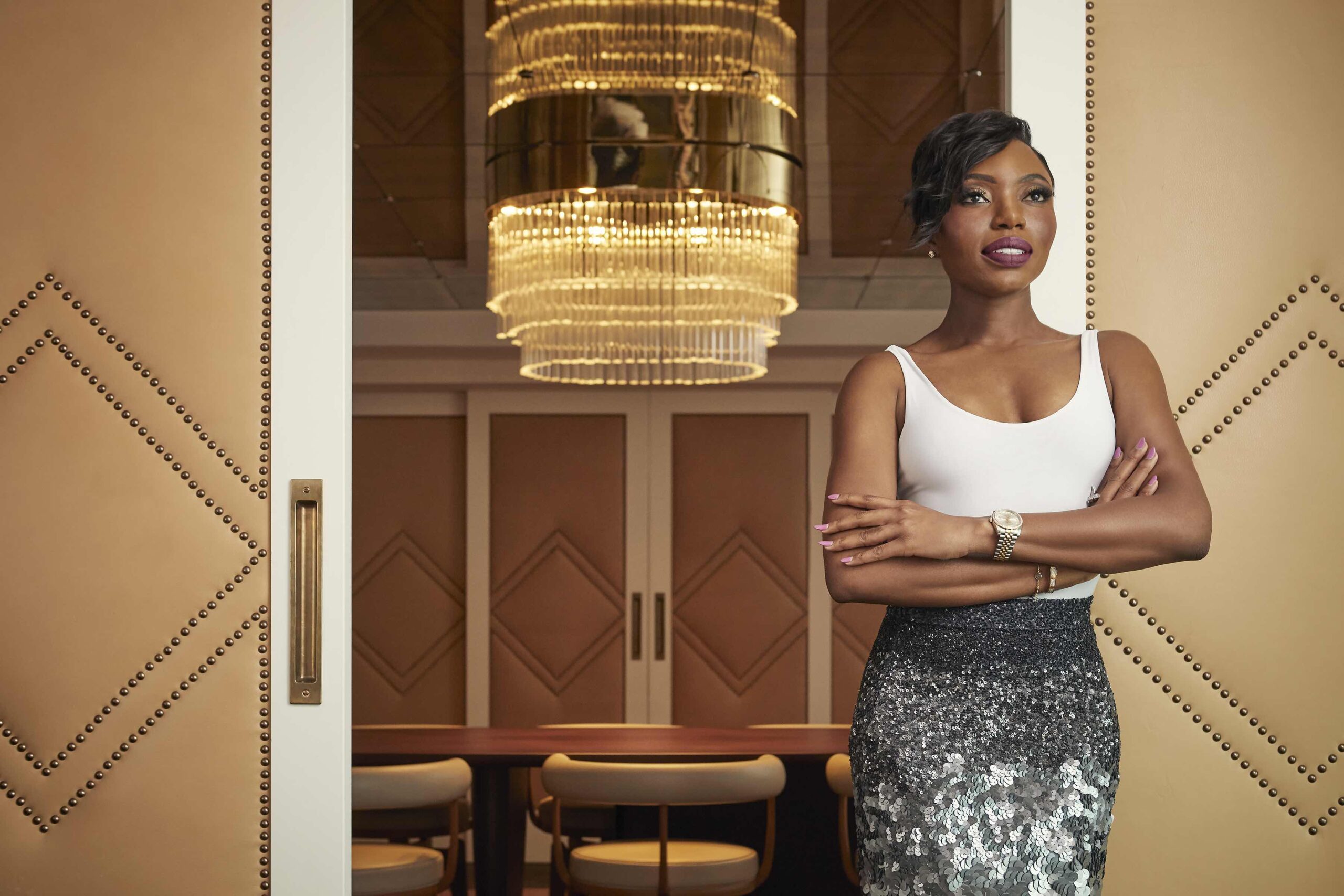
LYS and LYS Beauty were trademarked by Astral in June 2020. In late 2020, Astral trademarked Love Your Seflie, which it now uses for Pur. Astral is helmed by CEO and executive chairman Robert Cohen, a white man. There is no mention of LYS on Astral’s website. On LYS’s site, there’s no mention of Astral. However, the brand’s beauty returns are handled at the same location as beauty returns are handled for Astral brands, and the contact address it gives is the same as Astral’s address in Atlanta.
While Thompson didn’t elaborate on LYS’s affiliation with Astral, she provided a statement underscoring the brand is majority Black-owned. In it, she said, “LYS Beauty is proud to be a majority Black-owned, self-funded brand with investors and strategic partners that help leverage and support the brand’s infrastructure to meet the demands of our powerhouse exclusive retailer, Sephora. I am happy to see retailers finally embracing Black-owned businesses and seeing my fellow founders get the shelf space they deserve.”
The topic of Black ownership can be challenging for retailers to navigate as the idea of ownership verification can be reminiscent of racism at its most nuanced. Black entrepreneurs frequently encounter obstacles their white counterparts don’t and putting them through a process to establish they own their brands is another layer that white counterparts sidestep. And requiring Black brand owners to submit to an additional level of scrutiny can seem improper in a business environment in which investment isn’t merely normal, it can be vital to scale. Thompson says, “Providing funding and resources is paramount in unlocking the incredible business ideas of emerging entrepreneurs.”
So, should a retailer audit a brand’s ownership? “It depends on the type of audit,” says Jaé Joseph, co-founder of The Black Apothecary Office, a beauty brand accelerator focused on Black and Latinx founders. “I don’t recall white brands having to prove their ethnicity…However, [an] audit could help a Black-owned or BIPOC brand secure retail space and growth opportunities versus a non-Black-owned or BIPOC brand. The audit could also stop the appropriation of Black-owned and BIPOC brands from being knocked off or repackaged as theirs because they can make it faster or market it better because their pockets are bigger.”
“So many brands that were founded by Black people have been purchased or invested in for a majority stake by white people. Buying from those brands is not serving Black communities.”
Mackenzie Hill, co-founder of wellness and beauty lifestyle brand LumiBloom, asserts ownership audits aren’t appropriate in all circumstances. “Black-founded and -[led] business are entitled to continue to promote and brand themselves around that identity regardless of structural issues associated with investments that are critical to their growth and long-term success,” she says. “Obviously, there could be a point when those claims no longer reflect reality and can’t be authentically made. Leadership, control of the strategic direction and initiatives of a business, all of these things matter along with the percentage of control of the business itself. You don’t just lose your identity because you take on investors or are acquired by and become part of a larger corporate family. You have to take these issues on a case by case basis.”
Without any definition in practice, though, the status quo can be harder to change at retailers. They can highlight brands in their selections (e.g., a SheaMoisture or Carol’s Daughter) as part of their diversity efforts as they fail to expand those efforts. James says, “We need to see an industry-wide standard for how we define ‘Black businesses’ and that definition must be developed by Black people on both sides of the equation: Small business owners and corporate executives.”
Insight into possible definitions can be gleaned from the eligibility rules for American government contracts earmarked for women or disenfranchised companies. To receive an 8(a) Certification, which qualifies a business to be eligible for government contracts set aside for disenfranchised groups, a 51% ownership stake must be proven. The business must have small business status, and minority and disadvantaged business owners manage day-to-day and long-term operations as well as income restrictions for owners. Government contracts set aside for woman-owned companies are similar. WBENC Certification validates that a business is at least 51% owned, controlled, operated and managed by a woman or women.
Joseph argues the bigger picture can be as important as ownership. “There needs to be transparency in the acquisition of a Black-owned company by white investors who want to continue the vision,” he says. “This comes along with keeping a majority Black and brown team in the decision-making roles across all levels of R&D, executives and board members.”
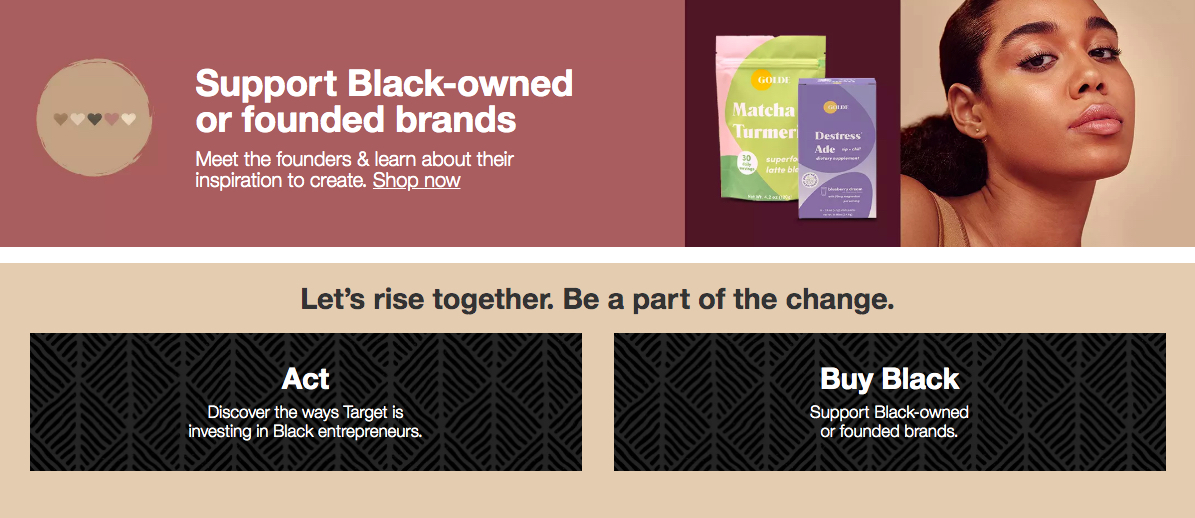
Chris Cabrera, founder of Naturally London, a line of handcrafted botanical foot and hand care products, agrees that the picture isn’t always straightforward. She says, “Retailers need to ensure the founders and ownership is justified as Black person, perhaps by doing a deep dive into the brand and interviewing the founder/owner. As long as a Black person has ownership in the business, they should be able to say Black-owned. This includes investors, parent companies, etc.”
Although it can be difficult to disentangle ownership, James is convinced retail companies can do it. “Large corporations have the resources to do their homework,” she says. “They have an obligation to ensure the brands they invest in are owned and operated by Black people, who more than likely live and invest in Black communities. Unfortunately, many corporations get this wrong.”
KEY TAKEAWAYS
- According to the United States Census Bureau, Black Americans made up around 13.4% of the US population in 2019—not taking into account those who identify as more than one race—yet Black-owned consumer goods brands, historically corralled to end caps or dusty bottom shelves, have been regularly under-indexed in major retailers.
- The disparity between demographics and the reality at retail motivated fashion designer Aurora James to start the Fifteen Percent Pledge calling for retailers to commit 15% of their shelf space to Black-owned brands. Twenty-two companies, including Bluemercury, Bloomingdale’s, Sephora and Macy’s, have taken the pledge.
- Retailers tend to group Black-owned and Black-founded brands together, but James emphasizes they are not the same. She says, "We’ve seen Target tout that they uplift Black-owned and Black-founded brands, and both of those are great to support, but only one of those, Black-owned brands, will actually help our community.”
- The blurring of Black-owned and Black-founded brands at retail can confuse consumers attempting to help the Black community by backing Black-owned brands with their purchases. It can also make it difficult to hold retailers accountable for their pledges to diversify selections.
- For the most part, retailers haven't defined "Black-owned" for the purposes of brands entering their assortments. Walmart, however, has defined what a diverse supplier serving it is. According to the chain's handbook, it's a “U.S. privately held company that is 51% owned and operated by a woman, minority, veteran or person with a disability or a member of the lesbian, gay, bisexual or transgender (LGBT) community.”
- James says she defines “‘Black-owned’ as a business where at least a majority of the shareholder equity, partnership interest, member share or other ownership interest in the business or its holding companies are owned by Black people."
- Sephora has listed brands online as Black-owned, but it's unclear if all the brands included are majority owned by Black people. For example, in a Forbes article, it's estimated that Rihanna owns 15% of Fenty Beauty, a brand she developed with LVMH-owned incubator Kendo.
- Insight into defining ownership can be gleaned from eligibility rules for U.S. government contracts earmarked for women or disenfranchised communities, which call for a checklist of requirements.
- Some Black brand owners and thought leaders consider auditing Black ownership to be problematic and possibly discriminatory. Other industry leaders believe that, without an audit process, white-owned parent companies can manipulate consumers into thinking their dollars are going to a Black-owned business when, in reality, a Black founder or CEO can front a predominantly white company.
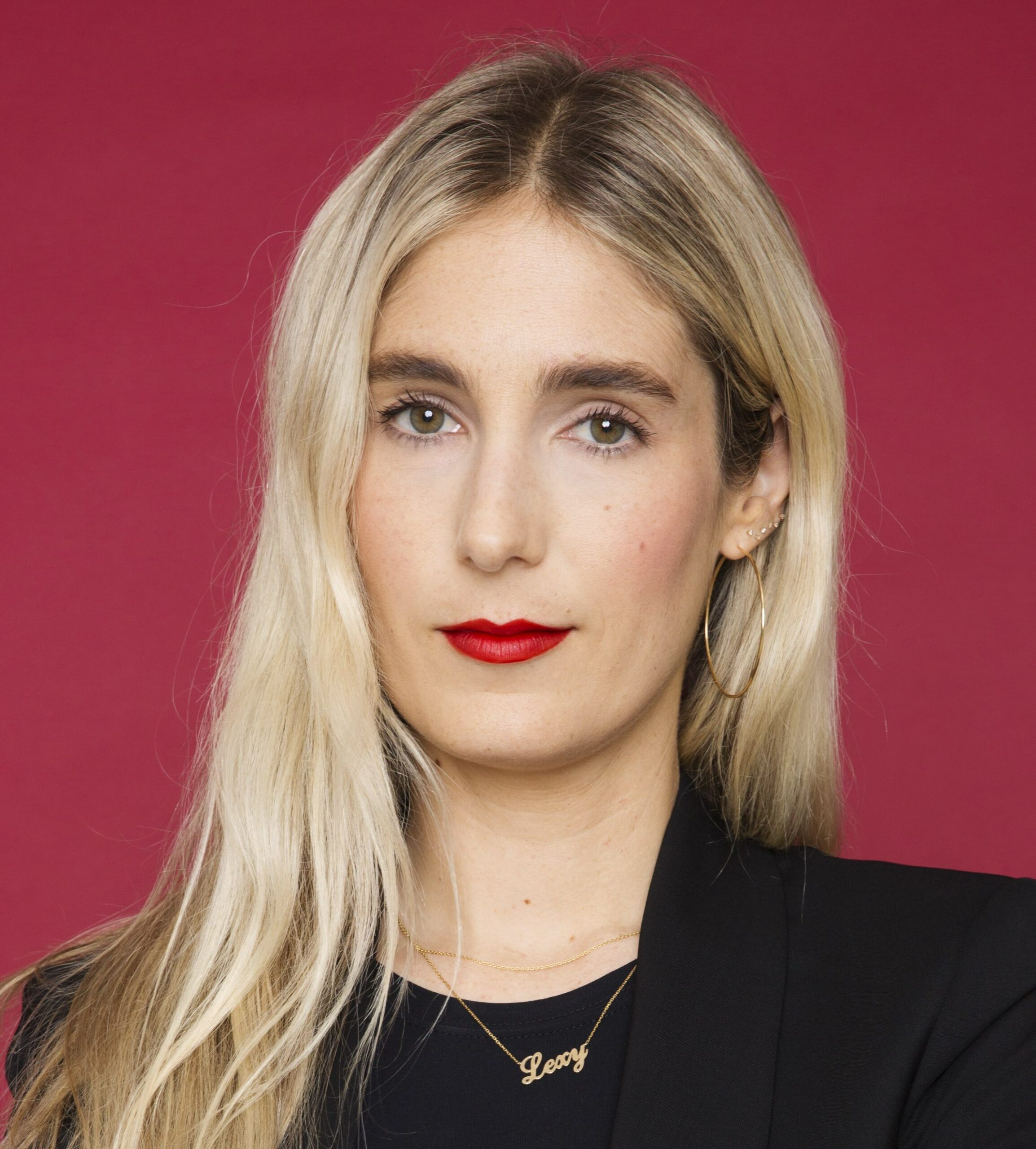


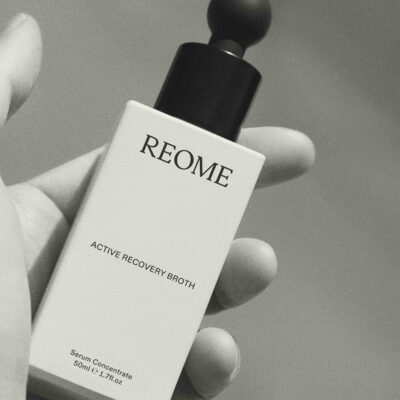
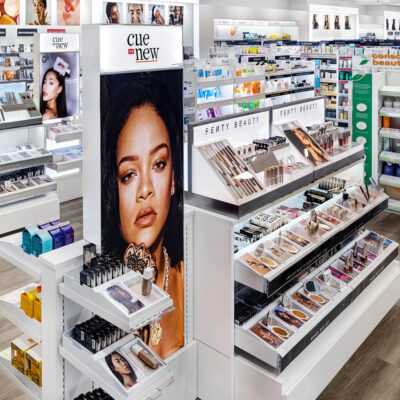
Leave a Reply
You must be logged in to post a comment.